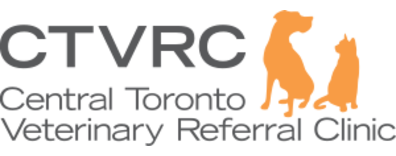Central Toronto Veterinary Referral Clinic





Our Clinic
Founded by Dr. Devon Boyd and Dr. Michael Goldstein, CTVRC is a veterinary emergency and referral hospital in the Humewood/Cedarvale neighbourhood in Toronto. We provide our patients with the best available treatment combined with outstanding patient care. Our Toronto veterinary clinic provides consultations for surgery, internal medicine, cardiology, oncology, and ophthalmology, as well as advanced diagnostics through an on-site CT scanner, ultrasound, and digital radiography.
Choose CTVRC as your referral clinic where we understand that your pet is an important part of your family. Our Eglinton veterinary facilities are conveniently located for all your pet needs.





